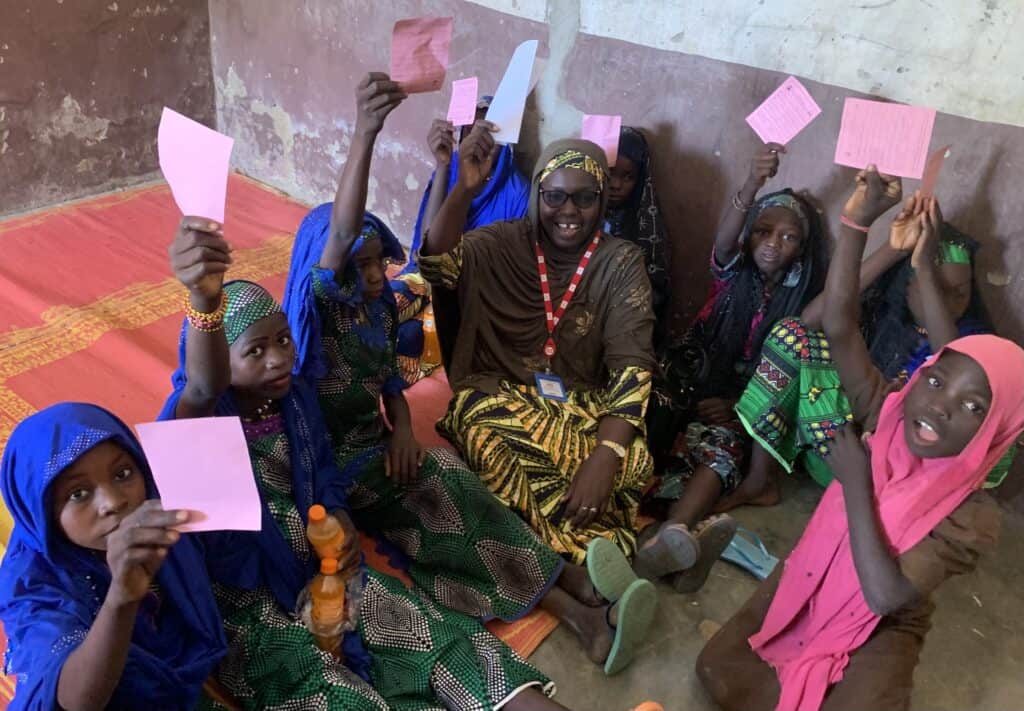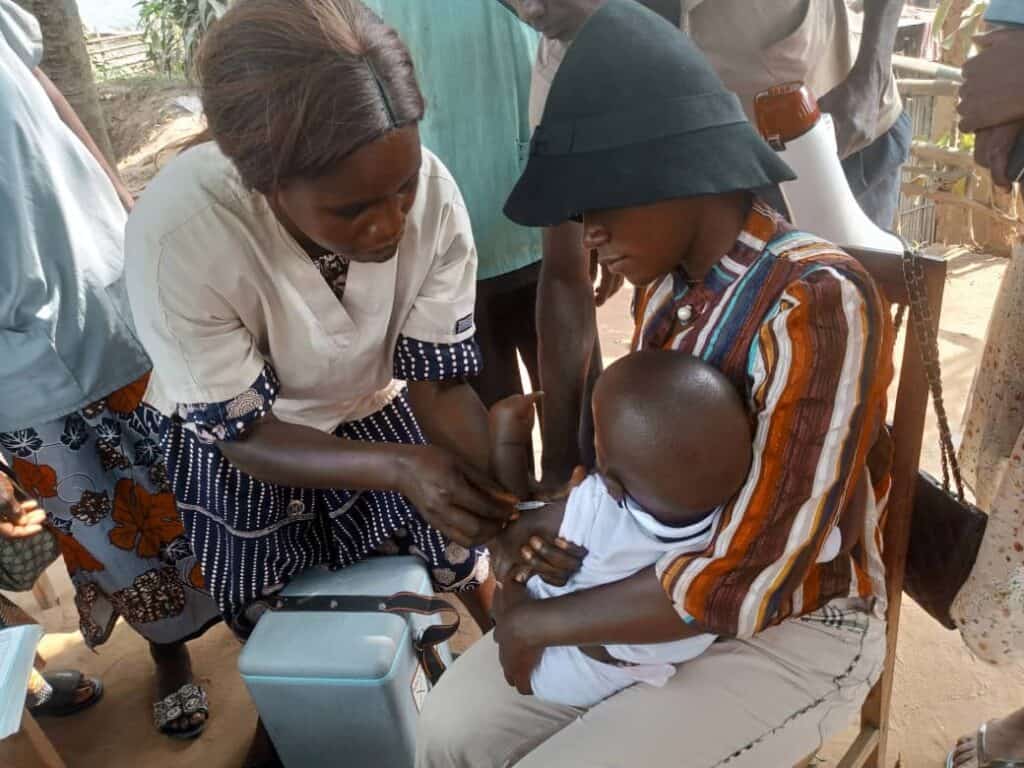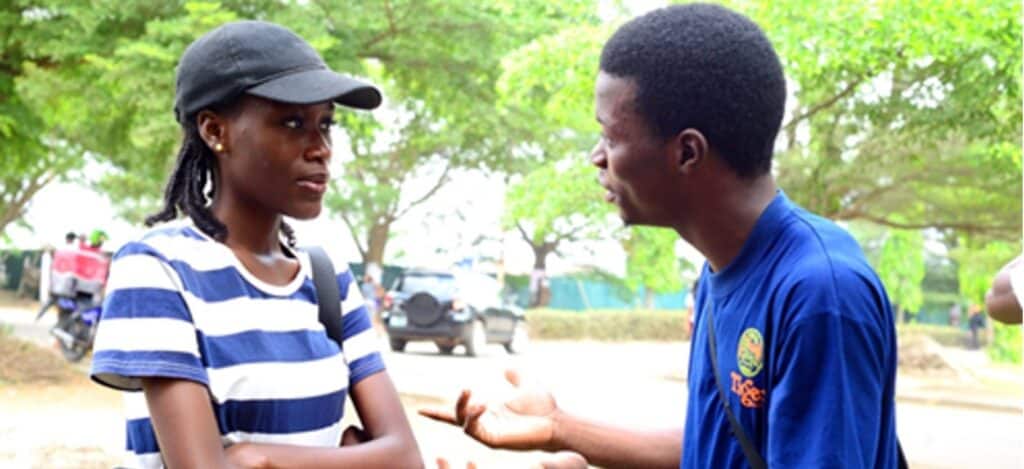This website uses cookies so that we can provide you with the best user experience possible. Cookie information is stored in your browser and performs functions such as recognizing you when you return to our website and helping our team to understand which sections of the website you find most interesting and useful.
Immunization
Ensuring that all people benefit from vaccines requires a deep understanding of the social, behavioral, and system-level drivers of vaccination. JSI integrates social and behavior change (SBC) across our immunization work, from identifying strategies to reach zero-dose and under-immunized children with life-saving vaccines to increasing vaccine uptake across the life course to creating supportive environments for health workers to deliver high-quality immunization services. We work with local partners to identify and implement both time-tested and innovative strategies to increase awareness of and confidence in vaccines, thereby increasing uptake and completion.
Through participatory processes like human-centered design, we identify barriers and facilitators to vaccination uptake and co-create context-specific solutions with community members, caregivers, and health workers. We collaborate with governments, local partners, and health care providers to identify social and behavioral drivers of vaccine uptake. We work with communities to correct mis/disinformation and implement interventions, and with partners to deliver people-centered vaccination services that can increase demand and protect communities.
We prioritize equitable access to vaccination services and use SBC to understand the demand and supply-side factors that affect their delivery and uptake. We strengthen the capacity of governments and other local partners to use behavioral science to increase immunization coverage, including by establishing locally led centers of excellence.
For more information, contact Melinda McKay, Behavior Initiative Director at Melinda_McKay@jsi.com.
Project in Focus
MOMENTUM Routine Immunization Transformation and Equity
JSI leads a consortium of partners that applies best practices and explores innovations to increase equitable immunization coverage in 12 countries. We apply a behavioral lens to identify, understand, and overcome barriers to reaching zero-dose and under-immunized children and older populations with life-saving vaccines and complementary health services. We collaborate with and strengthen the capacity of governments and partners to understand what influences immunization behaviors, and co-create, implement, and adapt sustainable solutions over time.
In Ethiopia, the project supported community COVID-19 vaccine dialogues. In the Nifas Silk Lafto sub-city, these dialogues contributed to a 75 percent increase in the number of participants surveyed who reported a positive attitude toward the vaccine. More than half of the participants were vaccinated immediately following the dialogues. In India, the project partnered with the government and a network of local NGOs to bring equitable COVID-19 vaccination to underserved populations through community meetings; working through local, trusted advocates; and conducting vaccination events. These efforts gave more than 55 million people reliable information about COVID-19 and contributed to the vaccination of more than 15.6 million people.





